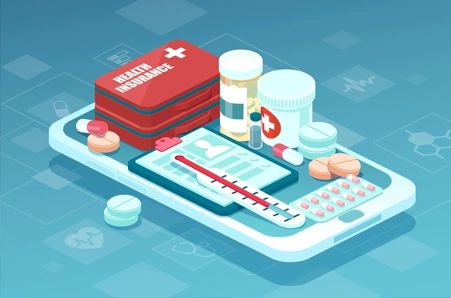Online pharmacies offer convenience and accessibility for obtaining medications, but they also come with risks such as counterfeit drugs and fraud. To ensure a safe and effective experience when using online pharmacies, follow these tips and best practices.
1. Verify the Legitimacy of the Online Pharmacy
Check for Certification
Ensure the online pharmacy is certified by relevant regulatory bodies. In the United States, look for accreditation from the National Association of Boards of Pharmacy (NABP) or check for verification from the Verified Internet Pharmacy Practice Sites (VIPPS) program. Internationally, similar regulatory organizations or certifications may apply.
Look for a Physical Address
A legitimate online pharmacy should provide a physical address and a contact number. Be cautious of sites that only offer a P.O. Box or do not provide any contact information.
Verify the Website’s Security
Ensure the website uses encryption to protect your personal and payment information. Look for “https://” in the URL and a padlock symbol in the browser’s address bar.
2. Consult with a Healthcare Provider
Obtain a Prescription
Legitimate online pharmacies require a valid prescription from a licensed healthcare provider. Avoid sites that offer prescription medications without asking for a prescription or do not verify your prescription.
Discuss Your Medications
Before using an online pharmacy, discuss your medications and health conditions with your healthcare provider. They can help you determine if the online pharmacy is appropriate for your needs and ensure that the medications are suitable for you.
3. Watch for Red Flags
Suspicious Prices
Be wary of online pharmacies that offer medications at prices significantly lower than those at traditional pharmacies. This could indicate counterfeit or expired drugs.
Lack of Professional Advice
Avoid online pharmacies that do not provide access to a licensed pharmacist or offer no professional advice. A legitimate pharmacy should offer a way to consult with a healthcare professional regarding your medication.
Poor Website Design
A professional online pharmacy should have a well-designed, user-friendly website. Be cautious of sites with poor design, numerous pop-ups, or excessive advertisements, as these could be indicators of a fraudulent operation.
4. Research the Online Pharmacy
Read Reviews and Ratings
Check reviews and ratings from other users to gauge the credibility of the online pharmacy. Look for feedback on the quality of medications, customer service, and delivery times.
Verify Contact Information
Test the contact information provided on the website by reaching out with questions or concerns. A legitimate pharmacy should have responsive customer service and provide clear, accurate information.
5. Ensure Proper Medication Handling
Check for Medication Authenticity
Verify that the medications you receive are genuine and properly packaged. Look for signs of tampering or differences from what you expect based on your prescription.
Follow Medication Instructions
Adhere to the dosage and usage instructions provided with your medications. If you have any questions or notice any discrepancies, contact your healthcare provider or pharmacist for clarification.
6. Protect Your Personal Information
Use Secure Payment Methods
Pay for your medications using secure payment methods such as credit cards, which offer better fraud protection compared to other payment methods.
Avoid Sharing Personal Information
Do not share sensitive personal information beyond what is necessary for your prescription. Be cautious of sites that request excessive personal details or financial information.
7. Report Any Issues
Report Fraudulent Activity
If you suspect that you have been a victim of fraud or received counterfeit medications, report it to the relevant authorities. In the U.S., you can report to the FDA or the Federal Trade Commission (FTC). In other countries, similar regulatory bodies or consumer protection agencies may be available.
Provide Feedback
Share your experiences with others by leaving reviews or feedback on forums or review sites. This can help others make informed decisions and alert them to potential issues.
Conclusion
Using online pharmacies can be a convenient way to manage your medications, but it’s essential to take precautions to ensure safety and authenticity. By verifying the legitimacy of the pharmacy, consulting with a healthcare provider, and watching for red flags, you can protect yourself from fraud and ensure that you receive genuine medications. Always follow best practices for securing your personal information and report any issues to help maintain a safe online pharmacy environment.

